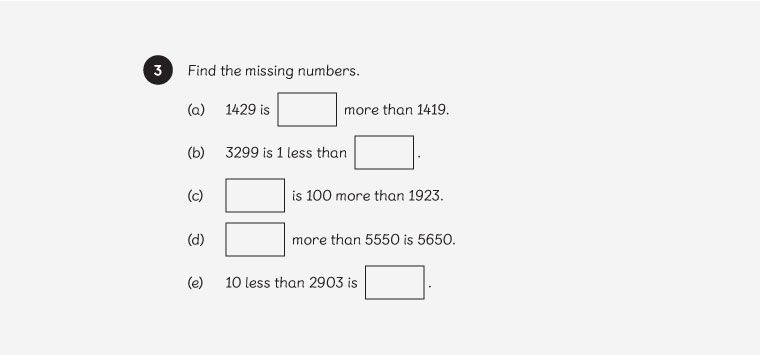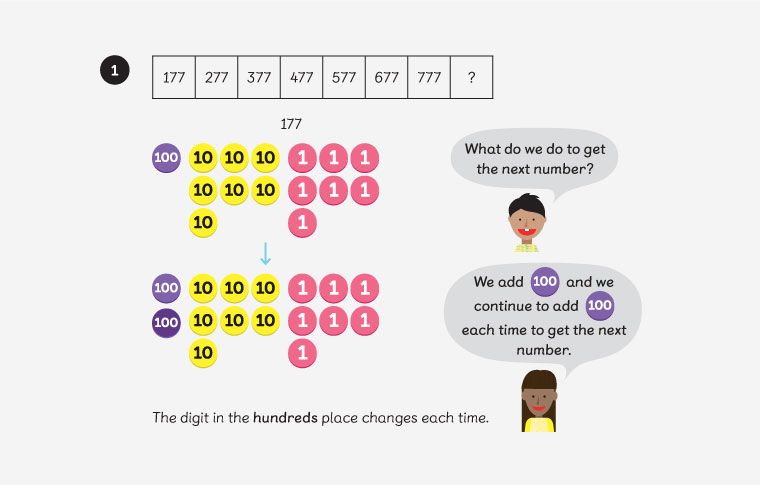3 questions parents ask about maths mastery (and how to answer them)
Editor’s Note:
This is an updated version of a blog post published on February 19th, 2019.
Parents need to buy into maths mastery and feel confident it will help their child succeed. Here’s how to answer three common questions about maths mastery.
Getting parents involved in their child’s learning has been shown to have a positive influence on learner achievement. Yet, parents’ views on maths tend to be informed by their own school experiences and how well they think their child is doing.
Parents’ perceptions of how their child is doing is often based on what they say after school or whether they need help with their homework. Other times, it’s dictated by more formal ‘evidence’ like what set their child is in, assessment results and end-of-term reports.
Things get even more interesting when I talk to parents about maths mastery, a teaching approach they didn’t have when they were in school. I see the same concerns pop up again and again.
Let’s look at three common questions parents ask about the maths mastery approach.
1. Does maths mastery work?
Some parents have never heard of maths mastery or Singapore Maths. Others believe it’s an imported approach from Singapore and that it won’t be suitable in countries like England. You can tackle this misconception by explaining that Singapore maths is still ‘mathematics’ and is fully aligned with the English national curriculum.
I then talk about what they can expect from a typical maths mastery lesson. The big idea that resonates with parents is that this teaching approach builds confidence.
How do you convince parents that maths mastery makes a difference to learning?
The first thing to explain is how maths mastery encourages learners to share ideas and try out different methods of problem-solving. You don’t see the forest of hands from learners that are ‘stuck’ because with mastery, learners are less reliant on the teacher— they work with different children, model answers in front of the class and ask each other when they’re not sure.
Although they don’t realise it, learners gain confidence very quickly during this type of lesson. They use mathematical vocabulary freely, don’t mind making mistakes and get used to explaining what they’re doing.
In my classroom, everyone contributes, but no one dominates. The rule is ‘you don’t have to agree with what people say, but you do have to listen’. The teacher’s role, according to my class, is to ‘nudge’ where needed.
In a nutshell: maths mastery works because it helps learners become more confident and self-reliant.
2. My child is bright and goes through maths quickly. How will maths mastery challenge them?
First, let’s unpick the idea that being good at maths has anything to do with speed. I’d argue that it’s the opposite. Being good at maths means slowing down and having an in-depth understanding of mathematical concepts.
How do you convince parents that a mastery approach stretches even the most advanced learners?
Here’s a small but significant example from Maths — No Problem! Workbook 4A, Chapter 1, Worksheet 8. It deals with making number patterns for numbers to 10 000. To get them all correct, learners have to manipulate numbers in different ways. Going fast will mean making at least one mistake.

Here are some other things about this example you can point out to a parent.
The placement of the answer varies — not all answers come at the end, they can be at the beginning or in the middle. Sometimes the answer is an actual number, other times the learner has to specify whether the amount increased or decreased.
While the first question is straightforward, the other questions deliberately involve numbers and operations that take you over ten, one hundred or a thousand. Show parents how the difficulty level builds gradually, providing scope, challenge and rigour for all attainment levels. This is called a ‘low floor–high ceiling’ task.
Although this is only one example, it perfectly highlights how questions and lessons in the mastery approach gradually ramp up in difficulty. Learners draw on multiple methods and their peers to solve problems.
In a nutshell: mastery tasks are ‘low floor–high ceiling’ and advanced learners will always be engaged and challenged during their maths lessons.
Boost Your Practice with FREE CPD
Receive a CPD boost every time you refer a school! Both you and the referred school will earn a full day of CPD and 2 free places on our 3-day Essentials of Teaching Maths Mastery course (valued at £1700).
Get started on helping struggling schools reach maths success now!

3. My child doesn’t like maths and struggles to understand it, but I’m not surprised, they probably got it from me. Will maths mastery help them to succeed?
We need to dismantle this idea that it’s acceptable for adults (and children) to say this as an off-the-cuff remark. After all, no one would say ‘I don’t like reading, and I don’t understand it’.
How do you convince a parent that maths mastery helps struggling learners get the most from their maths lessons?
Start by explaining how maths mastery helps learners with low mathematical self-esteem ‘find a way in’. Right from the beginning, it sets high expectations, making the assumption that learning (and even liking) maths is possible for all.
You can show parents the number patterns lesson again, but this time look at Maths — No Problem! Textbook 4A, Chapter 1, Lesson 8. Here, you can see the building blocks that help less confident learners understand how the numbers change in different columns.

This is a nice opportunity to explain how each lesson reinforces the CPA approach. Point out that in the first example, learners use concrete materials (Dienes blocks) to represent the number changes. Maths — No Problem! characters Ravi and Lulu are shown in bubbles, explaining the thinking behind the maths.

Learners progress to the pictorial stage by reflecting the patterns on a number line. Then they move onto recording their answers using numerals. With confidence, they might be able to go ‘one step further’ by extending the pattern.
Here, you can see the maths is differentiated and designed with the struggling learner in mind.
Even though one parent told me that using Dienes blocks in KS2, “sounded babyish”, many parents were grateful their child was building a deep understanding of what the maths actually means.
In a nutshell: maths mastery builds understanding, helping learners to enjoy maths and reach their full potential.
Of course, these answers only provide a snapshot, a flavour of their child’s everyday experience. Ultimately, the key to alleviating parental concerns is to be proactive.
Setting up a workshop at the start of the academic year for new starters allows you to talk about the ideas behind the maths mastery approach and show examples in the textbook and workbook. With parents on board, perceptions of maths can and will change.
